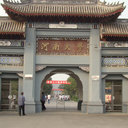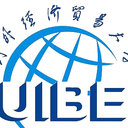Ophiopogonin B-induced autophagy in non-small cell lung cancer cells via inhibition of the PI3K/Akt signaling pathway.
Mots clés
Abstrait
Ophiopogonin B (OP-B) is a bioactive component of Radix Ophiopogon Japonicus, which is often used in Chinese traditional medicine to treat pulmonary disease. However, whether or not OP-B has any potential antitumor activity has not been reported. Here, we show that the non-small cell lung cancer (NSCLC) cell lines NCI-H157 and NCI-H460 treated with OP-B grow more slowly and accumulate vacuoles in their cytoplasm compared to untreated control cells. Flow cytometric analysis showed that the cells were arrested in G0/G1 phase. Nuclear morphology, Annexin-V/PI staining, and expression of cleaved caspase-3 all confirm that OP-B does not induce apoptosis. Instead, based on results from both transmission electron microscopy (TEM) and the expression of microtubule-associated protein 1 light chain 3-II (LC3-II), we determined that OP-B treatment induced autophagy in both cell lines. Next, we examined the PI3K/Akt/mTOR signaling pathway and found that OP-B inhibited phosphorylation of Akt (Ser473, Thr308) in NCI-H157 cells and also inhibited several key components of the pathway in NCI-H460 cells, such as p-Akt(Ser473, Thr308), p-p70S6K (Thr389). Additionally, insulin-mediated activation of the PI3K/Akt/mTOR pathway provides evidence that activation of this pathway may correlate with induction of autophagy in H460 cells. Therefore, OP-B is a prospective inhibitor of PI3K/Akt and may be used as an alternative compound to treat NSCLC.




